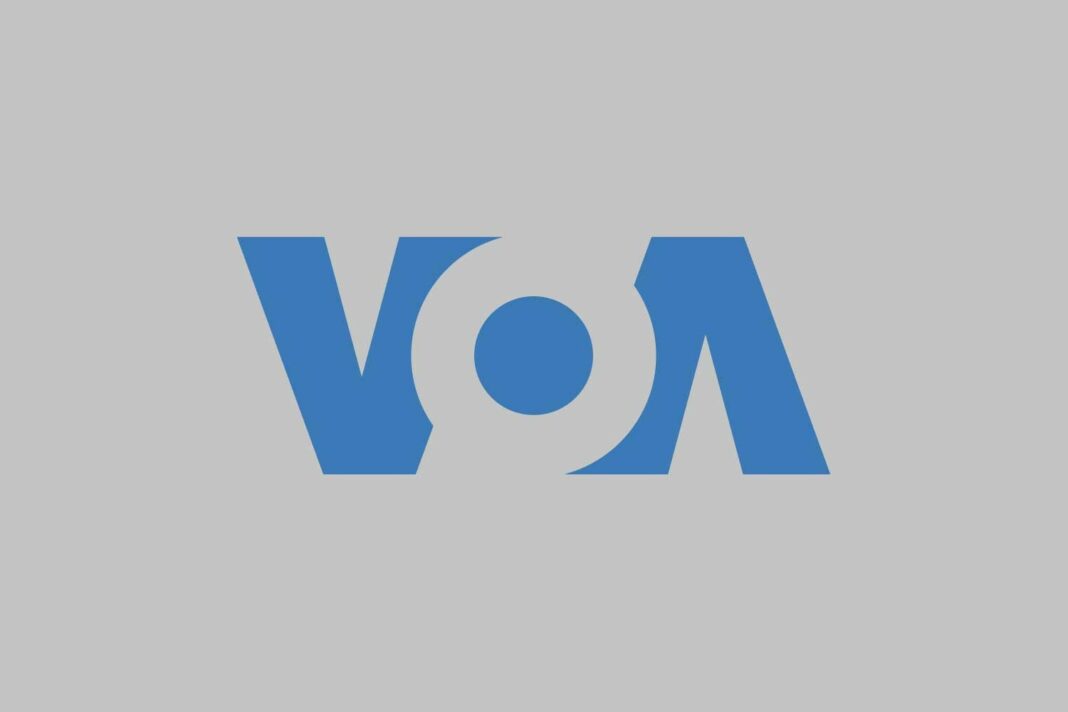The US State Department as well as international and local press organizations have criticized Turkey’s media watchdog for threatening to block access to the Turkish edition of US broadcaster Voice of America if it does not obtain a broadcasting license, VOA Turkish reported.
The Radio and Television Supreme Council (RTÜK) said in a statement on Monday that if VOA Turkish does not submit a petition that includes its application for a broadcasting license within 72 hours and pay the broadcasting license costs for three months at once or halt its broadcasts, access to the website will be blocked.
The deadline will expire on Thursday, when the VOA Turkish website is expected to be inaccessible without the use of VPN.
The US State Department said Tuesday it is closely following the situation and is “deeply concerned.”
A spokesperson, speaking on background, told VOA via email that the US is urging Turkey to “uphold its obligations and commitments to respect the fundamental freedom of expression.”
“The individual’s rights to freedom of expression includes freedom to seek, receive, and impart information and ideas of all kinds, regardless of frontiers,” the spokesperson said.
“Respect for freedom of expression is enshrined in Turkey’s constitution and in its international commitments and obligations.”
RTÜK, in a controversial move in February 2022, asked the foreign providers of Turkish audio and video content to secure broadcasting licenses, which has been described by media outlets as an attempt at censorship and at expansion of the Turkish government’s control over domestic media to foreign outlets.
The foreign media outlets are the only source of free and independent journalism for some people in Turkey, where the majority of the media is controlled by the government.
When VOA Turkish as well as the Turkish edition of German broadcaster Deutsche Welle refused to comply with RTÜK’s order, the watchdog blocked access to both websites in July 2022.
The two news websites became inaccessible in Turkey without the use of VPN. Both shared instructions on their social media accounts about using VPN to access their content.
VOA Turkish, which was operating under the amerikaninsesi.com website at the time, also switched to voaturkce.com to circumvent the access ban.
The threat of a new access ban on VOA Turkish has also attracted widespread criticism from local and international press organizations.
Reporters Without Borders (RSF) Turkey representative Erol Önderoğlu told VOA Turkish that RTÜK is far from being a media watchdog which monitors media content in a democratic way but that it is after imposing the discourse of the “authoritarian government” on the media.
“RTÜK’s demand [for a broadcasting license] has nothing to do with a need for content regulation as it actually aims to design the media landscape,” said Önderoğlu, warning that the watchdog’s threats against international media organizations could negatively affect Turkey’s diplomatic relations with some countries in which the media outlets originate.
Deputy chairperson of Turkey’s Contemporary Journalists’ Association (ÇGD) Ceren Bayar described RTÜK’s move as “a clear sign of lack of tolerance for journalism” and “unacceptable.”
She called on RTÜK to eliminate all the obstacles standing in the way of media organizations such as VOA Turkish and Deutsche Welle and to stop insisting on its censorship efforts.
According to Yusuf Kanlı, deputy chairperson of the Turkish Journalists’ Association, RTÜK’s demand for a broadcasting license from the Turkish editions of the international media organizations is just a pretext to control them.
He said these outlets play a crucial role in informing the Turkish people about the developments in Turkey and the world as most of the local outlets only spout government propaganda in their broadcasts.
Kanlı accused RTÜK of acting like a censorship agency.
VOA challenges ban
VOA’s public relations department confirmed that the regulator had issued a new order requiring that the broadcaster obtain a license within 72 hours and said the media organization would not comply.
“As a public service broadcaster designed to provide accurate and objective news, VOA cannot comply with any directive intended to enable censorship,” VOA spokesperson Bridget Serchak said in an email.
“VOA will continue to object to any requirement by Turkish regulators — or regulators in any country where we provide news and information — that smacks of attempts to censor our news coverage,” VOA acting director Yolanda Lopez said in a statement Tuesday.
“The requirement to remain a reliable source of independent journalism for our audience is enshrined in our Charter,” Lopez said, adding, “We will take every step necessary to avoid any interference by anyone that threatens the VOA’s ability to deliver on its mission.”
In 2019 Turkey revised its media regulations to allow RTÜK to supervise online broadcasts. Since the new regulations went into effect, various streaming platforms including Netflix and Amazon Prime have applied for and received licenses.
RTÜK is a controversial agency that is accused of contributing to increasing censorship in the country by imposing punitive and disproportionate sanctions on independent television and radio stations critical of the Turkish government.
Turkey has a poor record in media freedom, with RSF noting that around 90 percent of the media is government controlled, leaving few independent or critical news outlets.
The country, which has one of the worst records globally for jailing journalists, ranks 165th out of 180 on the press freedom Index, where first place indicates the best media environment.



